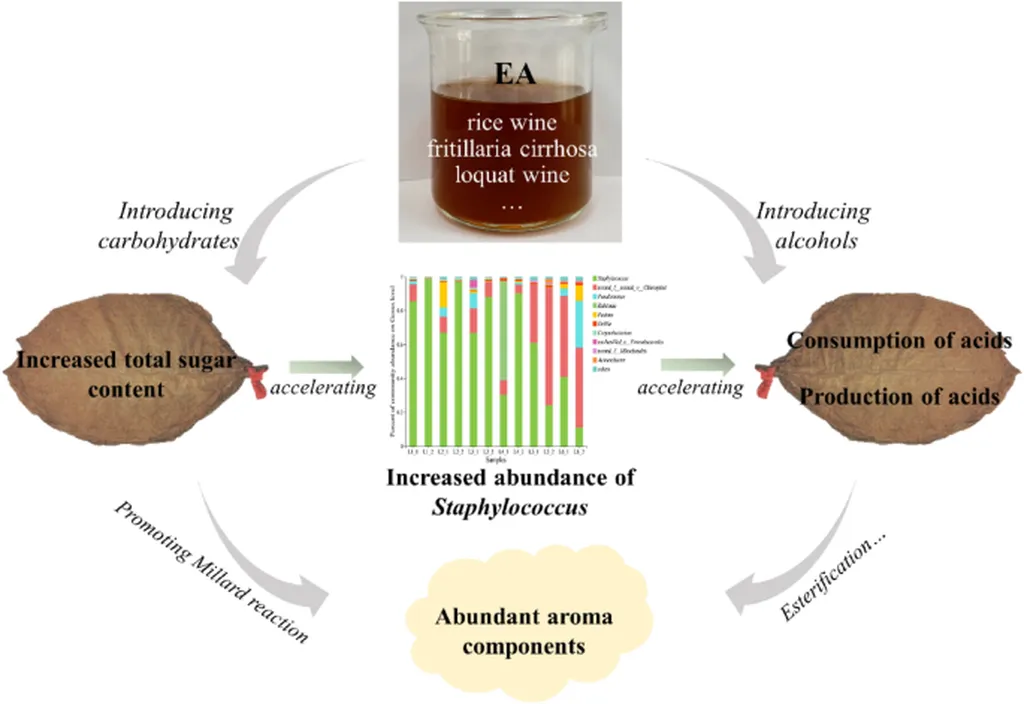In the world of cigar tobacco production, fermentation is a critical process that significantly influences the final product’s quality. A recent study published in *Frontiers in Microbiology* (which translates to *Frontiers in Microbiology* in English) has shed new light on how starch-degradation bacteria can enhance this fermentation process, with potential implications for the energy sector as well. Led by Yuming Yin from the College of Resources and Environment at Yunnan Agricultural University in Kunming, China, the research explores the effects of inoculating starch-degrading strains on the starch content and microbial metabolic pathways of cigar tobacco leaves.
The study isolated and screened starch-degradation bacteria from the surface of Dominican tobacco leaves at the end of fermentation and applied them to the fermentation process of “Yunxue NO. 39” cigar tobacco leaves. The researchers systematically analyzed the starch content, microbial diversity, community structure, starch metabolic enzyme profiles, and key metabolic pathway changes in tobacco leaves fermented for 18 and 35 days.
The results were striking. Both Bacillus pumilus and Bacillus velezensis (DX and BLS) exhibited strong starch degradation capabilities. Inoculation with these starch-degradation bacteria significantly enhanced the diversity of the microbial community, enriched functional microbial communities such as Bacillus, Acinetobacter, Staphylococcus, and Aspergillus, and markedly influenced the composition of tobacco leaf metabolites. This optimization of the micro-environment of tobacco leaf fermentation could have significant commercial impacts.
“Inoculation with starch-degradation bacteria not only promotes starch degradation but also enriches the functional microbial community, which in turn optimizes the fermentation environment,” said Yuming Yin, the lead author of the study. This finding could lead to more efficient and higher-quality fermentation processes, potentially reducing costs and improving yields.
Metagenomic analysis revealed that the dynamic changes of starch metabolic enzymes during the fermentation process were closely related to the succession of the microbial community. Bacillus and Aspergillus promoted starch degradation through synergistic interactions, highlighting the importance of microbial communities in the fermentation process.
KEGG pathway analysis revealed that starch metabolism is primarily accomplished through four core pathways: starch and sucrose metabolism, amino sugar and nucleotide sugar metabolism, glycolysis/gluconeogenesis, and mycolic acid biosynthesis. This understanding could pave the way for more targeted and effective fermentation strategies.
The implications of this research extend beyond the tobacco industry. The energy sector, particularly in biofuel production, could benefit from similar microbial strategies to enhance the degradation of complex carbohydrates. By optimizing microbial communities and metabolic pathways, biofuel producers could improve the efficiency and yield of biofuel production, making it a more viable and sustainable energy source.
This study provides a theoretical basis for the quality improvement of cigar tobacco leaves and confirms the potential application value of starch-degradation bacteria in tobacco fermentation. As Yuming Yin noted, “This research not only advances our understanding of the fermentation process but also opens up new possibilities for the application of starch-degradation bacteria in various industries.”
The findings published in *Frontiers in Microbiology* offer a glimpse into the future of fermentation technology, with potential applications that could revolutionize both the tobacco and energy sectors. As research continues to uncover the intricate relationships between microbes and their environments, the possibilities for innovation and improvement are endless.

